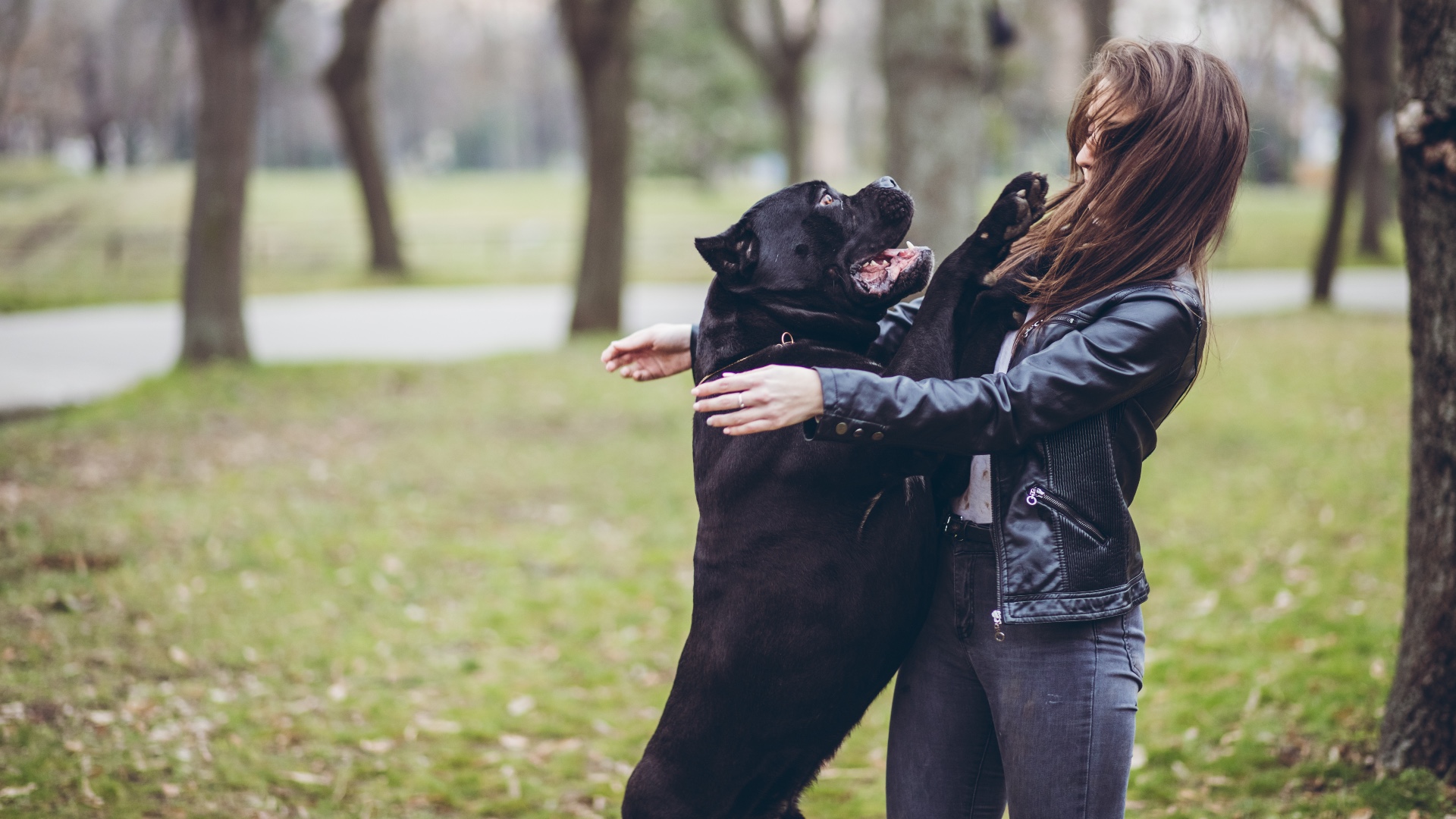
Does your dog jump up at you, other members of the family, or complete strangers? Do they refuse to get off the couch? Do they struggle with obedience in general?
Well, if you answered yes to any of the above, rest assured you're not alone!
The good news is that when it comes to how to stop a dog from jumping up (or preventing them from engaging in other behaviors you wish they wouldn't), it turns out it may be simpler than you think.
According to expert trainer Adam Spivey, there's one mistake he sees dog owners making time and time again when it comes to obedience training.
Keep reading to find out what it is...
"If your dog knows what down means, as in you say that and the dog goes into the down position, stop saying get down every time the dog jumps up at you or every time your dog's on the couch or anything you don't want it to be on," says Spivey.
Why?
Well, according to Spivey, this confuses your dog.
"Down to your dog means lay down," he explains. "So if your dog is sitting on the couch and you say down and the dog lays down when you actually want it to get off, this is confusing and the dog is doing the right thing."
If your dog is jumping up on you and you're saying get down, get down and pushing it away and your dog doesn't lay down, then it's learning to ignore you.
Either way, Spivey says the words 'get down' are problematic.
"What you actually want to use is something like 'off'," Spivey advises.
"For me, if the dog's jumping up, I walk forward and say 'off'. If the dog is a serial jumper, I make sure that dog is on an indoor leash so that I can grab that leash, say 'off' and lead the dog away."
Spivey says you can then ask your dog to sit and then stroke your dog so that your dog learns that sitting gets them the reward they want not jumping up.
"It's a silly thing but I see people making this mistake time and time again and they're confusing their dogs and they're wondering why the dogs aren't listening.
"Dogs need one word commands for behaviors that you have taught them. Keep it simple so that they understand more and you'll see a massive difference," says Spivey.
And if you feel like your pup would benefit from some extra support with learning the ropes of what's expected of them, we recommend reaching out to a professional trainer.
Be sure to read our guide to how to spot dog trainer red flags before you do that so you can rest easy knowing you're working with a trainer who's suitably qualified and uses positive training methods.







